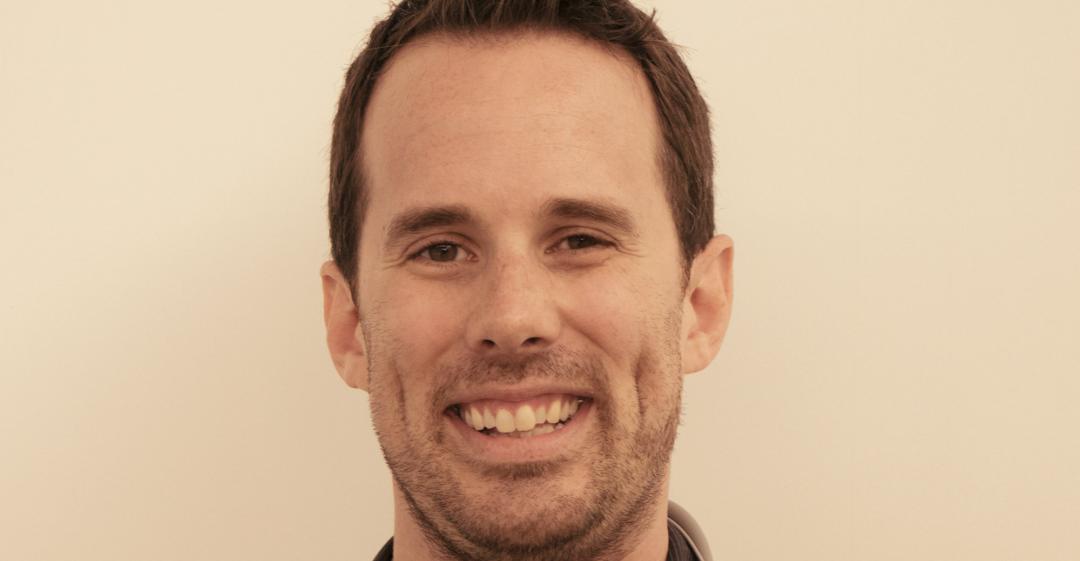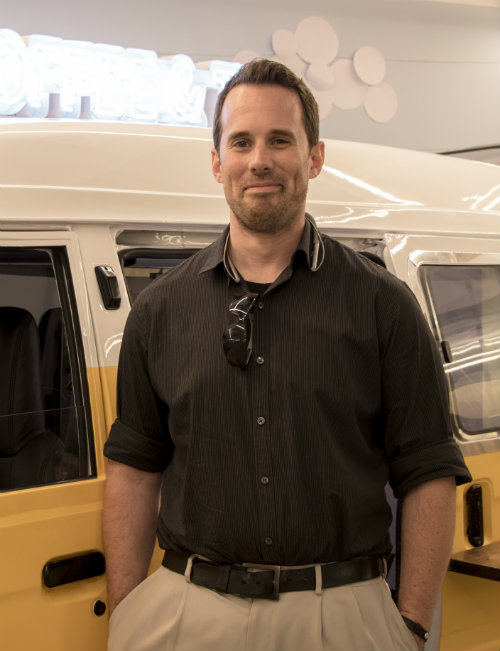“If there was ever a time to move, now was that time.”

What work were you doing previously?
I was a financial literacy trainer and budget counsellor for Greenville County, South Carolina, USA, through the AmeriCorps programme.
I used to work with individuals and families struggling to meet their monthly financial obligations to improve their debt-to-income ratio, credit score, employment stability and savings account balance.
What are you doing now?
I'm an ESL (English as a Second Language) Teacher in Hangzhou, China.
How did you feel about your work before you decided to make a change?
I loved my work with AmeriCorps, and could see the direct impact of it.
I felt value and need in meeting new people and hearing their stories, because not a lot of people were listening to this household income bracket.
We live in a time where much of our youth graduate with monthly financial obligations, but are not educated on the importance and value of maintaining a financially healthy lifestyle.
However, expanding in my role would have required me to become more political, and that was not a direction I wanted to move towards.
Why did you change?
When I turned 30, I realised that many of my friends had traveled abroad and enjoyed experiences in other cultures while vacationing.
It helped them understand the world as a whole, rather than basing their opinions purely on what is reported. Meanwhile, I hadn't yet stepped foot on international soil.
I also thought about where I was, the stability of the job and where it was going. While I believed in the work, it was a government-funded position (and the funds were annually decreasing).
When I first saw the opportunity to teach in China, via a company called EF English First, I didn't think I qualified. However, I choose to speak with a recruiter because it piqued my interest.
After the interview, I looked into the company and did my homework. I thought to myself that if there was ever a time to move to another country for a year, now was that time.
When was the moment you decided to make the change?
I did a cost-of-living comparison between both countries / areas.
I researched the air quality and the experiences of other people who did this type of job (it's pretty easy to determine who is going to give you an honest opinion).
The more I read, the more excited I became. By the end of my research, my pros / cons list was pretty one sided. I was 30 and knew there might not be another chance to have this experience.
Are you happy with the change?
I'm beyond happy with the change.
My confidence in my abilities has grown: I feel like if I set my mind to something I will accomplish it.
What do you miss and what don't you miss?
I miss working for a non-profit organisation and helping people in need.
I also miss helping people understand how to improve their position.
I don't miss the political nature of the position.
What didn't go well? What 'wrong turns' did you take?
Paperwork turned out to be troublesome.
Getting all my required visa documents left me at the mercy of domestic government offices which delayed my process a bit.
How did you handle your finances to make your change possible?
My previous skill set really helped me with this.
Before I even accepted the job offer I knew I could financially afford to do it. The visa process can take around four months so I had to support myself for that time.
My new employer gave me a 10,000rmb (£1,100 / $1,500), 0% interest salary advance that really helped me with my transition costs in China.
Also, China has a lower cost of living, so whereas in the US eating at restaurants was a budgeted expense, in China it could be more of a routine event.
What was the most difficult thing about changing?
Transitioning to a new culture and career was very exciting, but sometimes you don't want purchasing toothpaste to be a one-hour excursion.
In my personal life I tend to be reserved and quiet. However, teaching ESL to adults requires someone to share a lot of personal information. The students are genuinely interested. Opening up in this manner was challenging but highly rewarding.

What resources would you recommend to others?
I'd recommend doing research online if you'd like to make this transition.
However, read everything with critical eyes. As with most things online, people tend to be bombastic and sometimes it's easy to read the drama and not get the real information.
This career doesn't include travelling every day, but it does provide a great opportunity to both live, travel and interact in a new culture. I work 40 hours a week, and I travel usually two weekends a month.
Sites like Numbeo.com are a great resource for comparing the cost of living in different locations.
What have you learnt in the process?
I've overcome the misconception that I was behind in making a jump like this at 30.
That was simply rubbish. You can do this type of thing up until 55 due to China's visa policy. This career is in real demand in many parts of the world.
It can better your world view and make you a more well-rounded person. And the confidence boost I've received through this career change gives me more professional drive for the future.
What would you advise others to do in the same situation?
Do your research, and speak with someone who's done it.
The chances are someone you know has done this before and can give you some insight.
Try not not to compare cultures in a manner that lists one as better than another. Cultures are different and exciting in their own respective ways.
Once you're ready to make the transition, continue in your current role and time your departure from your current employer to the receipt of your Chinese work permit.
The contracts last one year and you can renew as often as you want.
A career in ESL is also not strictly teaching. There are many different paths you can take in this industry. Bring your talents and acquire new skills!
To find out more about EF English First's Teaching English in China Programme, visit: www.englishfirst.com.
Also, find out more about EF English First in our Retraining Directory.
What lessons could you take from Brandon's story to use in your own career change? Let us know in the comments below.



